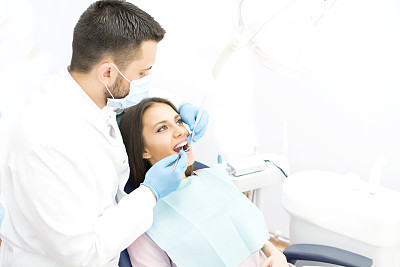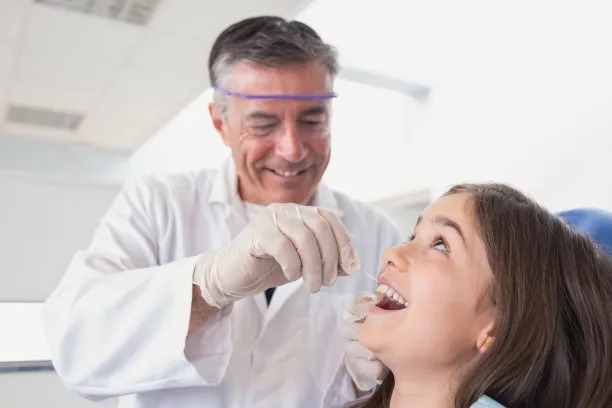Summary: Extracting a tooth can be a complicated process that necessitates a thorough understanding for effective oral care management. This article provides a detailed overview of the tooth extraction process, potential reasons for needing extraction, the aftercare required following the procedure, and the importance of consulting dental professionals. By examining these key aspects, individuals can better navigate the complexities of tooth extraction, leading to improved oral health outcomes and a more seamless recovery process. This understanding not only demystifies the experience but also empowers patients to take charge of their own dental health.
1. Understanding the Reasons for Tooth Extraction

Tooth extraction may seem like a daunting decision; however, it is often necessary for various medical reasons. One of the most common reasons is severe tooth decay. When a tooth becomes extensively damaged and cannot be salvaged through fillings or root canals, extraction becomes the next viable option. This is crucial not only for the patient’s health but also for preventing the decay from spreading to neighboring teeth.
Another reason for tooth extraction involves orthodontic treatment. In some cases, overcrowded teeth require removal to achieve proper alignment and spacing. Orthodontists typically evaluate all options before recommending extraction, ensuring that this intervention will facilitate better alignment of the remaining teeth.
2. The Tooth Extraction Procedure Explained
The tooth extraction process begins with an initial consultation, during which the dentist evaluates the patient’s dental health. X-rays may be taken to examine the tooth’s roots and surrounding bone structure. This detailed assessment helps the dentist devise a suitable extraction plan, which may involve local anesthesia to ensure the patient’s comfort during the procedure.
Once anesthesia takes effect, the dentist carefully loosens the tooth using dental instruments. The extraction technique may vary depending on whether the tooth is fully erupted or impacted. For impacted teeth, surgical extraction may be necessary, where the dentist makes incisions to access the tooth. Regardless of the procedure chosen, ensuring that the extraction is handled with utmost care is essential to minimize discomfort and complications.
After the tooth is removed, the dentist will place gauze over the extraction site to promote clotting and minimize bleeding. Patients are given aftercare instructions that are crucial for supporting the healing process and preventing complications.
3. Aftercare Following Tooth Extraction
Post-operative care is critically important to ensure a smooth recovery. Patients are advised to rest for the first 24 hours following the extraction to minimize swelling and bleeding. It’s essential to apply ice packs to the outer cheek area in intervals of 15 minutes on and 15 minutes off to reduce inflammation.
Diet also plays a vital role in recovery. Patients should stick to soft foods and liquids in the initial days post-extraction, avoiding crunchy or chewy items that could irritate the healing site. Keeping hydrated is important, but patients should refrain from using straws, as the suction can dislodge the blood clot that is vital for proper healing.
Regular follow-ups with the dental professional should be scheduled to monitor the healing process. If unexpected pain or complications arise, it is important to contact the dentist promptly to address any issues proactively.
4. The Importance of Professional Dental Consultation
Consulting with a dental professional prior to tooth extraction is crucial for ensuring that all options are explored. Dentists can provide alternatives to extraction, potentially saving the tooth if the situation allows. This professional guidance is not only beneficial for the immediate situation but also contributes to long-term dental health management.
Moreover, dental professionals can offer personalized aftercare plans that cater to the unique needs of each patient. This tailored approach enhances the recovery experience and ensures that patients are fully informed about their post-operative care.
Education is also an essential component of the dental consultation. Patients can learn about best practices in maintaining oral hygiene post-extraction, as well as the importance of regular dental check-ups for proactive health management.
Summary:
In summary, understanding the process of tooth extraction and subsequent aftercare empowers patients to manage their oral health effectively. Awareness of when extraction is necessary lays the groundwork for informed decision-making, while comprehension of the extraction procedure and aftercare fosters a smoother recovery. Lastly, the role of professional consultation cannot be overstated; engaging with a dental professional can lead to better outcomes and a deeper understanding of personal dental health.
This article is compiled by Vickong Dental and the content is for reference only.
Vickong Dental
Vickong Dental is a large medical group established in Hong Kong in 2008 by professors from well-known medical universities in Guangdong and Hong Kong, as well as medical doctors from key national '985' universities (including Master's supervisors and senior professors). The chain of branches brings together expert dentists with PhDs and Master's degrees from Hong Kong and Mainland China, committed to providing high-quality dental treatment.
"Vickong Dental Practices the University Motto of 'Healing and Serving Society,' with a Stable Operation for Sixteen Years. It Has Been honored with Hong Kong Enterprise Leaders's Choice,' and is a Global Trusted Implant Center for the Nobel Implant System. Recommended by Hong Kong Metro Broadcast and Guangdong Television, it Serves Customers from Over Thirty Countries and Regions, Gaining the Trust and Favor of Citizens from the Guangdong-Hong Kong-Macau Greater Bay Area and Surrounding Cities.

Thousands of customers' unanimous praise
The most recognized and highly recommended dental service by customers in the Guangdong-Hong Kong-Macau Greater Bay Area
We Ensure You Receive Detailed Care and Attention Here
Hong Kong standards, Shenzhen prices, Your Trusted English-speaking dentists

Vickong Dental Medical-Grade Instrument Disinfection Process
Vickong Dental Medical-Grade Instrument Disinfection Process

Vickong Dental Chain: A Warm and Comfortable Environment for Treatment






Appointment Hours

Q&A
Why choose Vickong Dental?
Vickong Dental practices the university motto 「Medicine to Benefit Society」, with each branch bringing together highly qualified dentists with doctoral and master’s degrees from Hong Kong and the Mainland, and has maintained seventeen years of steady operation。Recipient of 「2024 Hong Kong Enterprise Leaders Brand」, 「2025 Hong Kong Enterprise Leaders Brand」, a Nobel Biocare Global Trusted Implant Center, and a brand recommended by Metro Radio Hong Kong and Guangdong TV。
To date, we have served customers from more than thirty countries and regions,earning exceptionally high word-of-mouth recognition and trusted recommendations from residents across the Guangdong-Hong Kong-Macao Greater Bay Area and surrounding cities
We have eight major branches in Zhuhai、Shenzhen,and a consultation and service assurance center in Hong Kong,so you can book a free consultation at any time for any questions,which is very reassuring.
If I do not accept the quotation after the CT scan, will I be charged??
No! As long as the actual treatment has not started, you will not be charged any fees.
Will there be any additional charges during the treatment process?
No, there won’t be any additional charges. Before treatment begins, we will clearly explain the treatment plan and its corresponding fees. Only after the patient agrees and signs the consent form will we proceed with the dental service.
Can I pay in Hong Kong dollars?
Yes. Vickong Dental accepts payment in Hong Kong dollars. The amount will be converted based on the exchange rate of the day, and the applicable rate will be clearly communicated to you in advance.
Can I reschedule my appointment at any time?
Yes. Please contact us via **WeChat** or **WhatsApp** as early as possible, providing your original appointment time and details, along with your preferred new date and time slot for rescheduling.













